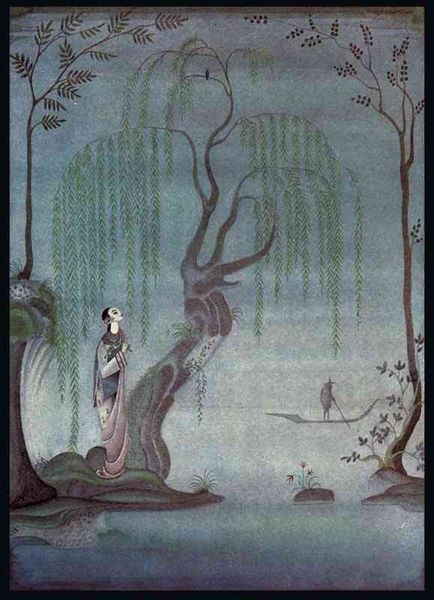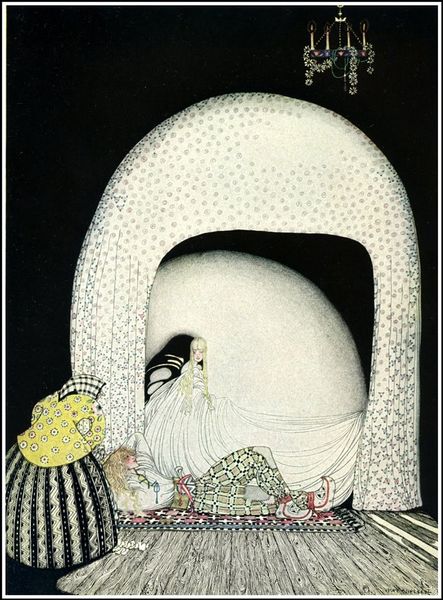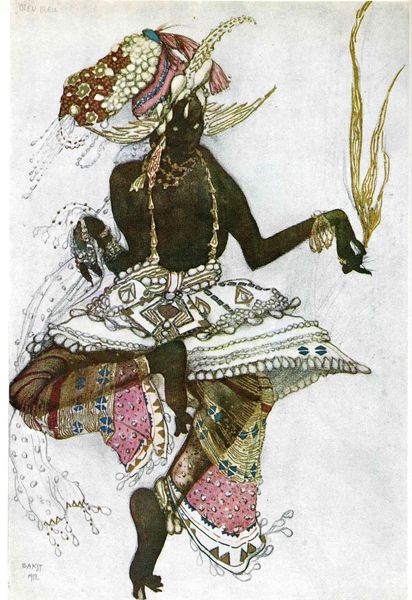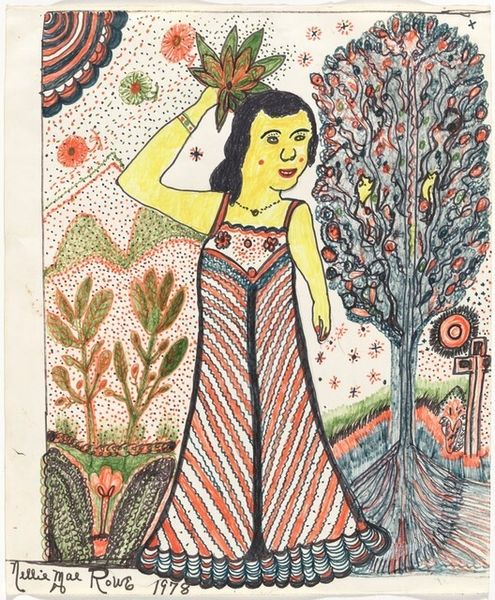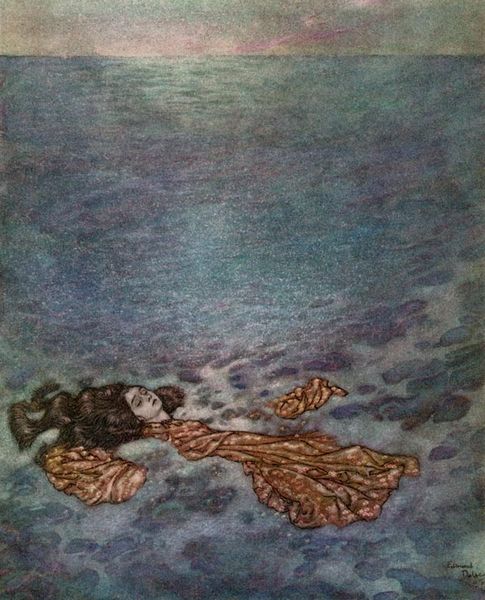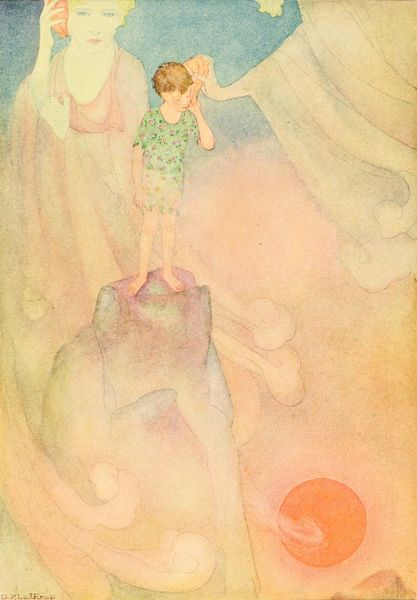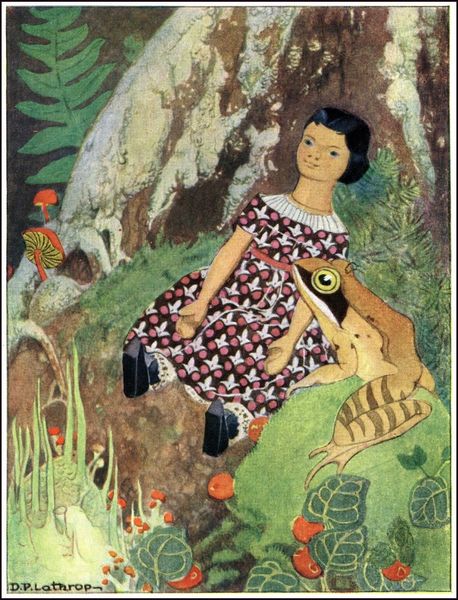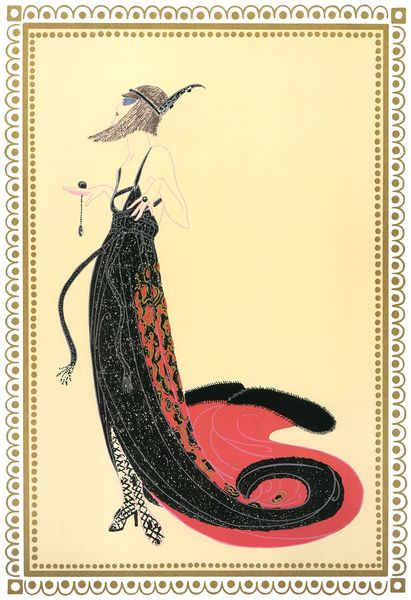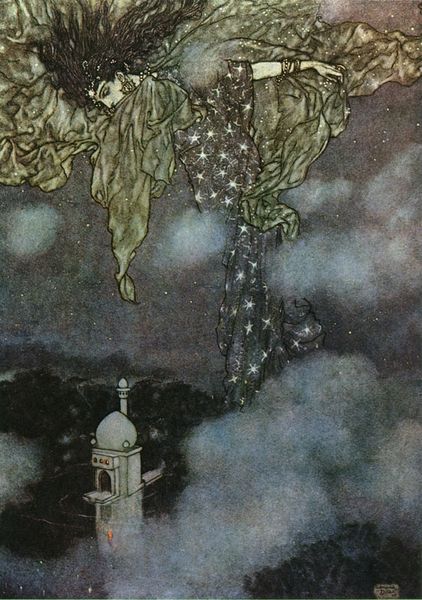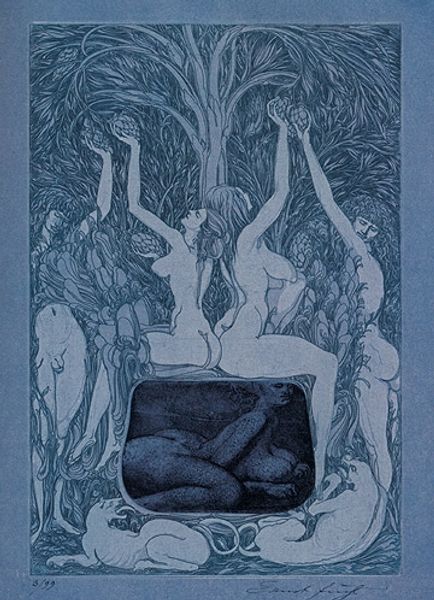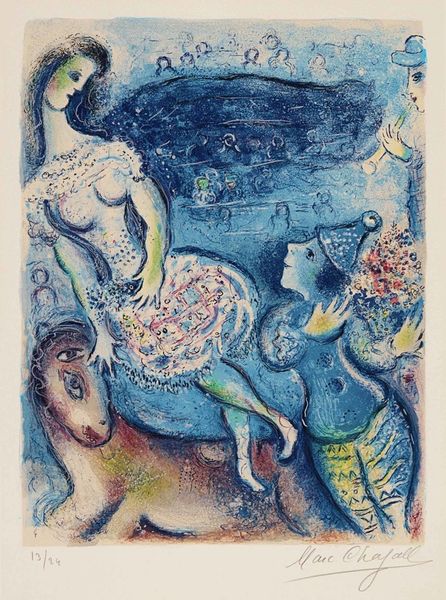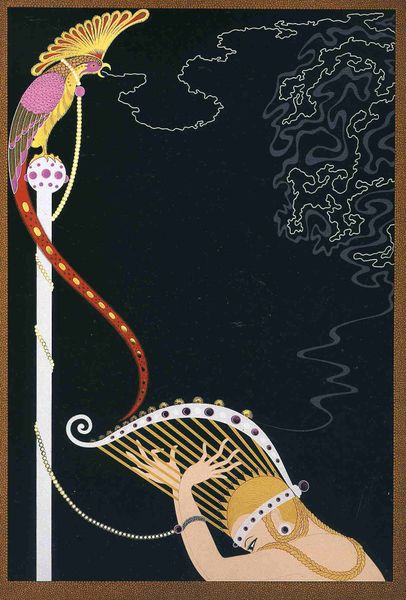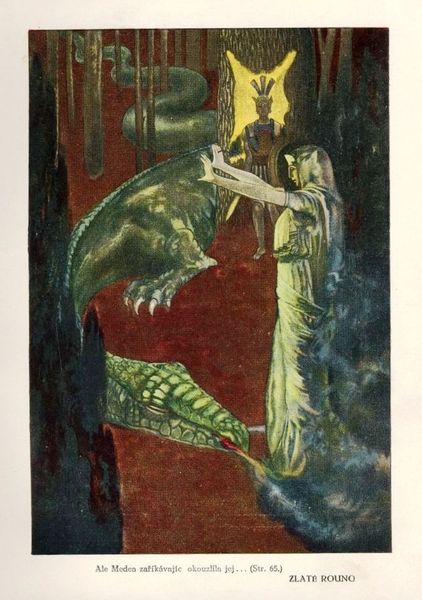
coloured-pencil, plein-air, watercolor
#
portrait
#
art-nouveau
#
coloured-pencil
#
plein-air
#
landscape
#
fantasy-art
#
figuration
#
watercolor
#
coloured pencil
#
naive art
#
symbolism
#
art nouveau
#
watercolour illustration
#
decorative-art
#
miniature
#
watercolor
Copyright: Public domain US
Editor: This is Dorothy Lathrop's "A Little Boy Lost," created around 1920 using colored pencil and watercolor. It has such a dreamlike, fantastical mood. How would you interpret this work? Curator: This piece seems to blend influences from Art Nouveau and Symbolism, reflecting a cultural interest in both decorative arts and the exploration of deeper, often spiritual or psychological, themes. Think about the period immediately after World War I, when this was made. How might the desire for fantasy and escape have been reflected in the art world? Editor: That's interesting, I didn't consider the post-war context. The style is certainly very escapist. Curator: Precisely. Also consider the figure of the woman holding the child. Does this composition remind you of other art-historical depictions of motherhood, perhaps Madonna and Child images, and how does Lathrop's context diverge? This helps frame the painting's purpose as more than just an aesthetically beautiful piece. It seems to explore deeper societal themes, perhaps the fragility of innocence after such a widespread and brutal war. Editor: I see what you mean. The inclusion of the leopard too...it makes it quite intriguing. It seems almost protective of the woman and child. Curator: Indeed! The choice of exotic animals like the leopard reflects the rise of colonialism and a fascination with the "exotic" at the time, influencing visual language. The museum's role, even then, was implicated in showcasing objects linked to that political project. What do you make of the relationship between art, fantasy, and socio-political history now that we've examined this work? Editor: This exploration showed me how "A Little Boy Lost" isn't just a pretty picture, but a reflection of societal tensions and artistic movements responding to particular moments in history. I will never look at fantasy art in the same way again! Curator: That's the beauty of art history – uncovering these hidden layers. Each artwork engages within, and reflects, an extensive cultural and historical network.
Comments
No comments
Be the first to comment and join the conversation on the ultimate creative platform.

